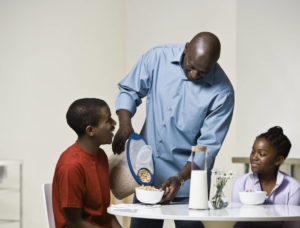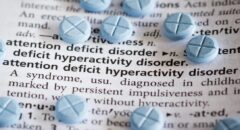 Awareness about and diagnosis of attention deficit hyperactivity disorder (ADHD) in minority populations in the United States has increased over the past decade. The higher numbers diagnosed likely are the result of more widespread attention to signs, symptoms, and diagnosis.
Awareness about and diagnosis of attention deficit hyperactivity disorder (ADHD) in minority populations in the United States has increased over the past decade. The higher numbers diagnosed likely are the result of more widespread attention to signs, symptoms, and diagnosis.
As a result, ADHD has been increasingly recognized among African-Americans. As challenging as it can be to raise a child with ADHD, new research offers biological evidence that calm, positive parenting may help these kids master their own emotions and behaviors.
The study was conducted with parents of preschool children with the developmental disorder. The physiological effects of using compliments and praise instead of yelling and criticizing were almost instant, the researchers found.
"We were surprised at how fast it happened," said study author Theodore Beauchaine, a professor of psychology at Ohio State University. "We evaluated moms and their kids before the intervention and after the intervention, which took a couple of months. Then we did a one-year follow-up.
"We expected that we may find some of these outcomes at one year, but not at two months, and we found them at two months," he added.
The study was conducted by monitoring and evaluating the results of a group of parents and children who were part of a special intervention program.
This program provides separate small-group sessions for parents and children where parents learn how to best respond to their children's behavior and children learn anger management, emotional awareness, emotion regulation and appropriate social behaviors, the study authors said.
Therapists worked with 99 kids aged 4 to 6 who were diagnosed with hyperactive/impulsive or combined types of ADHD. Those with only attention issues were excluded from the study.
Beauchaine explained that the children chosen for this study were in the top 2 percent of those who displayed ADHD behavioral issues. Seventy-six percent were boys.
Often, he noted, these children have strained relationships with their parents, peers, and teachers.
"We taught parents to use better discipline practices, as these parents tend to be overreactive and sometimes even physical in their discipline practices," Beauchaine said.
Dr. Alexander Fiks, an associate professor of pediatrics at the University of Pennsylvania, said parents often slip into negative parenting when they are tired or frustrated by their child's actions.
"Screaming, nasty comments, threats, ultimatums that may be unreasonable, pushing kids away, hitting, getting in their face or holding your child down are all negative parenting techniques," explained Fiks, who was not involved with the study.
"Most parents know positive parenting when they see it, which includes praise, flexibility, smiling, hugging, rewards, focusing on privileges, engaging kids in activities where they can succeed, setting achievable goals and making wishes and expectations that are reasonable for the child and developmentally appropriate," he said.
As parents learned effective problem-solving, adaptive emotional regulation and positive parenting responses, the children began to demonstrate improvements in behavior.
"What this research found was that in these kids, following this intervention, their heart rates slowed down, they were breathing more slowly and they were calmer," Beauchaine explained.
Fiks said: "It's interesting to see that when behaviors improve, there can actually bephysiologic differences that are noticed in these kids, reflecting that it's not just the outward behavior, but that there is something fundamental about their physiology that is actually changing concurrently."
To guarantee that these improvements were the result of the intervention, Beauchaine and his team divided the families into two groups, one that began the program approximately 20 weeks after the first group, and only participated in 10 sessions, half of what the first group received.
The changes in parenting among those in the initial group exceeded the changes among those in the delayed group, as did the changes in the children's physiology.
Beauchaine hopes this study will help convince parents to begin ADHD treatments earlier.
For preschool children diagnosed with ADHD, primary treatment is not medication, according to Fiks, it's behavioral therapy and counseling.
"When people see that there are biological changes that go along with an intervention, it increases the status and reduces stigma," Beauchaine said.
"If people think kids act with impulsivity and hyperactivity because they want to, they will think about those kids a lot differently if they attribute it to something that they can't help," he said.
For more information on ADHD, visit our Health Conditions tab on BlackDoctor.org.
SOURCES: Alexander Fiks, M.D., associate professor, pediatrics, University of Pennsylvania, Philadelphia; Theodore Beauchaine, Ph.D., professor, psychology, Ohio State University, Columbus; Nov. 7, 2017, Clinical Psychological Science








